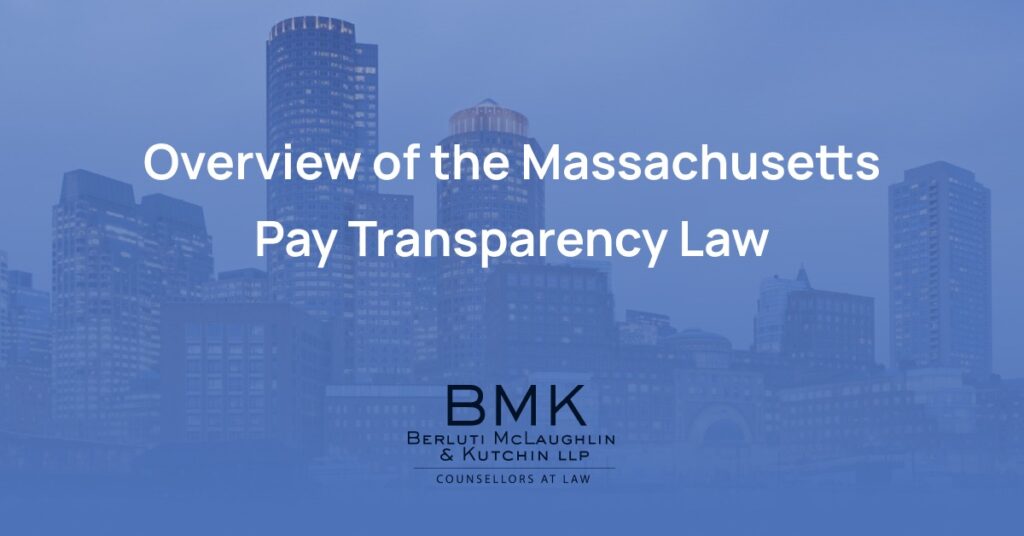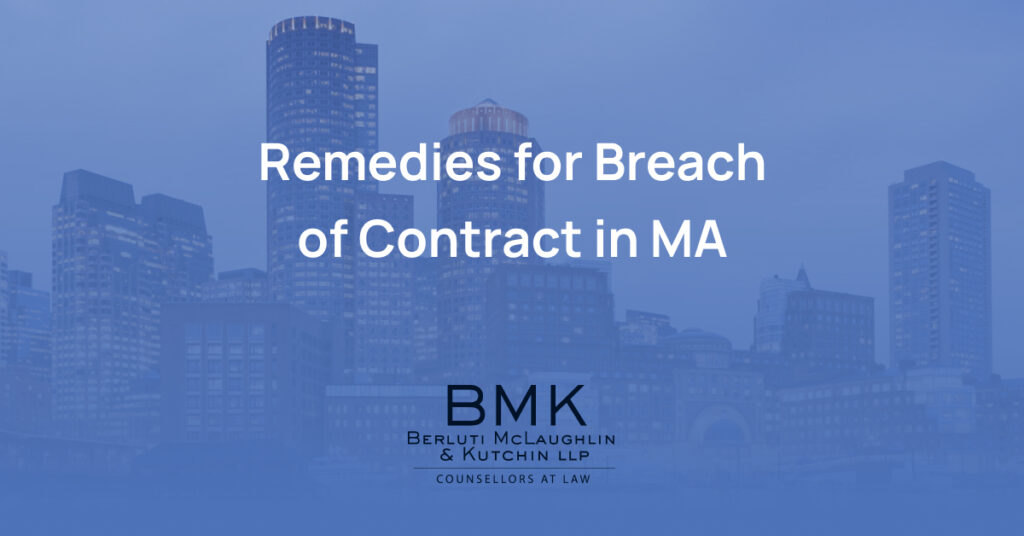
On July 31, 2024, Massachusetts joined multiple other states that have enacted pay transparency laws when Governor Healy signed House Bill 4890, requiring Massachusetts employers to disclose certain salary information to employees, applicants, and the Commonwealth. Called the “Francis Perkins Pay Equity Act” (the “Act”), the new law has two main components:
- Pay range disclosure requirements, and
- Reporting requirements.
Pay Range Disclosure Requirements
Effective July 31, 2025, employers with twenty-five (25) or more employees in Massachusetts will be required to disclose pay ranges on three (3) occasions:
- In job postings;
- To employees offered a promotion or transfer to a new position; and
- To current employees and applicants, upon request.
“Pay range” is defined as “the annual salary range or hourly wage range that the covered employer reasonably and in good faith expects to pay for such position at that time.” According to that definition and unlike some other jurisdictions, an employer’s disclosures do not need to include additional compensation information, such as bonuses, commissions, or benefits.
Further, a “job posting” is any job posting or advertisement intended to recruit job applicants for a specific job, including both recruitment directly by the employer or indirectly through a third party.
Reporting Requirements
Employers with one hundred (100) or more employees in Massachusetts, that are already legally required to submit federal wage data reports (EEO-1, EEO-3, EEO-4, or EEO-5), must now additionally submit these reports to the Secretary of the Commonwealth, which will aggregate and publish the data by industry. Private employers must provide this information annually, while unions, state and local governments, and elementary and secondary school systems must submit their reports every other year. The first EEO-1 reports are due to be filed on or by February 1, 2025.
Prohibition on Retaliation and Discrimination
The Act prohibits retaliation and discrimination. An employer is not allowed to retaliate or discriminate against an employee or applicant for:
- Pursuing their rights under the Act;
- Making a complaint regarding an alleged violation of the Act;
- Instituting any proceeding under the Act; or
- Testifying in any such proceeding.
Enforcement and Liability
The Massachusetts Attorney General has exclusive jurisdiction to enforce the Act by seeking injunctive or declaratory relief. There is no private right of action for employees or applicants, meaning that individuals cannot bring a lawsuit against a company that they believe is in violation of the Act.
Covered employers that violate the Act will be subject to a warning for their first offense and, for the first two years after enactment, will be provided with an opportunity to cure any violation. Thereafter, the law carries progressive fines for any further violations, including:
- A fine of not more than $500 for the second offense;
- A fine of not more than $1,000 for the third offense; and
- A fine of between $7,500 and $25,000 per offense for the fourth offense or subsequent offenses, depending on the circumstances.
Violations of the Massachusetts Wage Act are not eligible for treble damages.
Contact Our Lawyers at Berluti McLaughlin & Kutchin LLP Today
For more information concerning the Massachusetts Pay Transparency law or other wage and hour obligations your company may have, contact a member of Berluti McLaughlin & Kutchin LLP.




